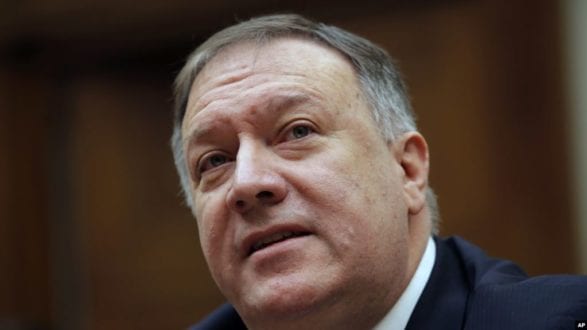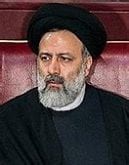RFL/RE – U.S. Secretary of State Mike Pompeo will formally notify the UN Security Council on August 20 that the United States intends to begin the process of restoring UN sanctions on Iran.
“The United States intends to restore virtually all of the previously suspended United Nations sanctions on Iran,” President Donald Trump said late on August 19. “It’s a snapback.”
As set out by the resolution enshrining the 2015 nuclear agreement between Tehran and world powers, a so-called snapback would reimpose UN sanctions that were eased in exchange for curbs on Iran’s nuclear program.
But the U.S. move faces opposition at the Security Council, where other members have questioned the United States’ right to do it since Washington withdrew from the nuclear deal more than two years ago and reimposed unilateral sanctions.
The United States claims it remains a “participant” in the accord because it was listed as such in the UN resolution that enshrined it.
An announcement of Pompeo’s trip to the UN headquarters had been anticipated since the failure of a U.S. resolution last week to extend an arms embargo.
U.S. State Department spokeswoman Morgan Ortagus said in a statement on August 19 that 30 days after the notification “a range of UN sanctions will be restored.” This includes an extension of the arms embargo, she said.
Pompeo, in an interview with Fox News on August 19, expressed confidence about invoking the “snapback” mechanism, even as he appeared to lack support from Russia, China, and European signatories to the nuclear pact.
“We are going to get these UN sanctions put back in place and the world will be safer,” Pompeo said.
He also said he would hold China and Russia accountable if they block the move. The United States “absolutely” will target Russia and China with sanctions if they refuse to reimpose the UN measures on Iran, he said, adding that the United States already has done that whenever it has seen any country violate current U.S. sanctions.
Russian Deputy Foreign Minister Sergei Ryabkov on August 20 said that U.S. moves to reinstate UN sanctions will “lead to nothing,” while “creating a very serious and profound crisis in the UN Security Council,” according to Interfax.
Pompeo also slammed European countries for not backing U.S. opposition to the nuclear deal.
European leaders “refuse to do the courageous thing,” Pompeo said.
“We have the same objectives, they are just wedded to this crazy nuclear deal,” he said, referring to the 2015 agreement with Iran and six world powers intended to prevent Iran from developing nuclear weapons.
The U.S. resolution to extend the arms embargo, which is set to expire in October under the nuclear deal, failed last week, with only the Dominican Republic joining the United States, and Russia and China voting against, while 11 members, including European allies, abstained.
That same resistance at the UN Security Council is expected to intensify as the United States acts to restore sanctions.
Iran has threatened to completely exit the Joint Comprehensive Plan of Action (JCPOA), as the nuclear deal is formally known, and hinted it will pull out of another key nonproliferation treaty if the arms embargo is extended or there is a “snapback” of sanctions.
But it also has said it will come fully back into compliance with the JCPOA if the United States abides by its commitments and lifts unilateral sanctions.
Diplomats and analysts say a restoration of sanctions on Iran would lead to a messy diplomatic battle that could undermine the UN Security Council and potentially collapse what is left of the nuclear deal. Pompeo, in his interview with Fox News, acknowledged that restoring sanctions could spell the end of the deal.
Bureaucratic, Procedural Moves?
Analysts say UN Security Council members will likely use bureaucratic and procedural moves to stall or block the U.S. bid to bring back sanctions.
Another option is for the UN Security Council members to respond to the U.S. claim that sanctions have been reimposed “with a collective shrug, making plain that they dispute the move’s legitimacy and that they will neither recognize new sanctions nor give them any effect,” the International Crisis Group wrote in a briefing.
Critics of the U.S. bid to extend the arms embargo say it was a cynical effort to try to snap back sanctions on Tehran, with the goal of killing the deal or making it difficult for any future U.S. administration to resuscitate it.
Britain, France, and Germany — all signatories to the JCPOA who have sought to keep it alive — have expressed worries about the arms embargo ending, but oppose U.S. action at the UN because they fear it would end the nuclear deal and damage the UN Security Council.
Experts say U.S. allies in Europe and Iran appear to be trying to wait out the Trump administration, calculating that former Vice President Joe Biden will win the November presidential election and de-escalate tensions with Iran.
 Shabtabnews In this dark night, I have lost my way – Arise from a corner, oh you the star of guidance.
Shabtabnews In this dark night, I have lost my way – Arise from a corner, oh you the star of guidance.



